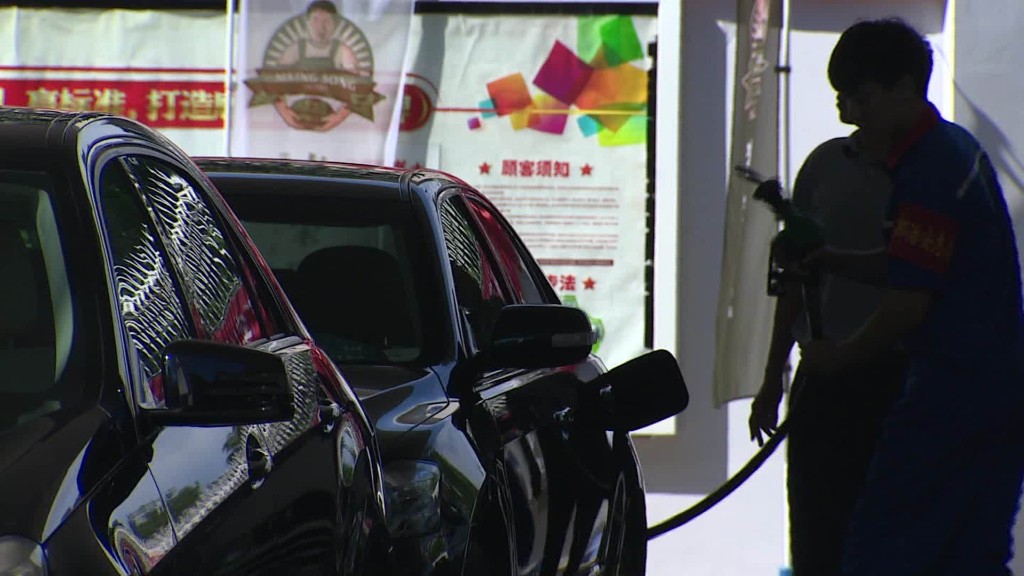
Many of the world's consumers are in the midst of a cheap oil party, reveling in lower fuel prices and fuller wallets. But not everyone has received an invite.
While gas prices are have dropped close to $1 per gallon in some parts of the U.S., they've remained unchanged in China since mid-January.
"I'm very jealous when I look at what's going on in the rest of the world," said Liu Jianguo, a 52-year-old chauffeur for hire in Beijing, where gas prices are stuck around 5.56 yuan per liter (roughly $3.20 per gallon).
Despite crude oil prices hitting their lowest levels in more than a decade in recent weeks, Chinese consumers have not seen corresponding discounts at the pump. Liu has been paying the same amount for weeks now because of a Chinese government-instituted price floor.
The National Development and Reform Commission, which is in charge of regulating fuel prices, set a new minimum in January. When crude oil trades below $40 per barrel, the government freezes the price of retail fuel.
Related: My heating oil savings are paying for a Disney trip
In other words, no matter how low oil goes, the current price at the pump is the best Chinese consumers are going to see.
"It's China," Liu said. "The government sets the prices ... What can ordinary people do about it?"
His frustration and resignation are familiar sentiments among Chinese consumers.
Officially, state media says the price floor is motivated by environmental concerns. Cheap gas would mean people buying more, resulting in more pollution in a country where's there's plenty of hazardous smog already.
Related: Why people are freaking out about cheap oil
Another reason for setting the limit is financial.
Profits plummeted at big state-owned oil companies last year as fuel prices plunged. Many experts suggest the price floor is a way for the government to ease that pain.
Slowing economic growth in China, the world's largest oil importer, is considered to be one of the factors that helped bring oil down to its current levels. A leading energy economist estimated last year that the price slump would save the country huge sums.
But Liu says costs everywhere else in Beijing are going up, so it would be nice if fuel went down.
That way, he'd have more money to reinvest in his car or maybe put toward his daughter's tuition.
At the very least, he'd have more cash to spend on the chestnuts he likes to eat while driving around.
